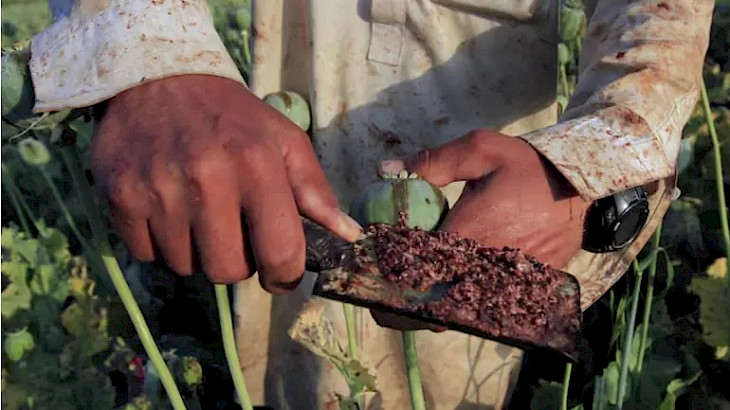The United Nations Office on Drugs and Crime (UNODC) announced that opium production in Afghanistan has increased by 30% in 2024 as compared to the previous year.
According to the statistics of this UN office, contrary to the orders of the Taliban leader, 433 tons of opium had been produced in Afghanistan this year, Afintl.com reports.
The United Nations Office on Drugs and Crime (UNODC) on Wednesday (November 27) published a report saying that the value of the opium crop in 2024 is approximately $260 million, an increase of 130% as compared to the previous year.
The office said that despite a 30 percent increase in opium production in 2024, it showed a 93 percent decrease when compared to 2022, before the issuance of a decree banning the cultivation and production of narcotics by Taliban leader Mullah Hibatullah.
The report states that poppy production and cultivation have been transferred from the southwestern provinces of Afghanistan to the northeastern provinces of the country. The office said that two-thirds of opium production took place in the northeastern provinces.
"International efforts must be coordinated to ensure that this reduction is not replaced by the production of dangerous synthetic drugs such as methamphetamine in Afghanistan or the region," said Ghada Waly, executive director of UNODC.
Waly called for help for poppy-dependent rural communities to turn to cost-effective legal and economic alternatives.
The office had reported last month that poppy cultivation in 2024 increased by 19% compared to the previous year. The United Nations had said that the area of poppy cultivation last year was 10,800 hectares, and this figure has reached 12,800 hectares this year.
Last month's report by the United Nations Office on Drugs and Crime (UNODC) also stated that poppy cultivation has grown in the northeastern regions of Afghanistan, and the price of dry opium has reached about $730 per kilogram.
CentralasianLIGHT.org
28 ноября 2024 года

